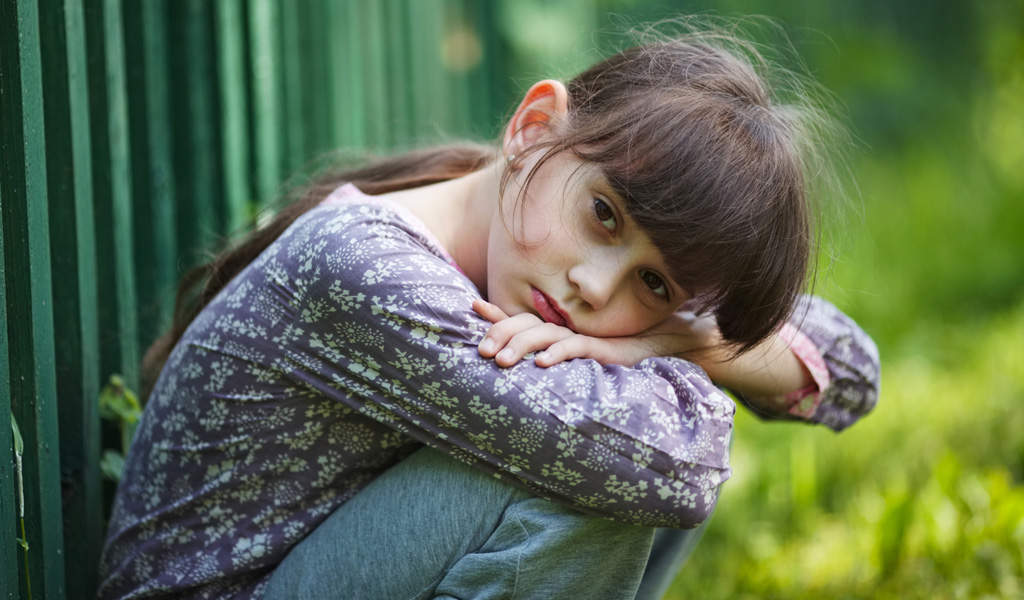When we hear the news about a teenager who has been shot or young children witnessing shootings in their neighborhoods, we may wonder what the long-term impact will be on these children. Research tells us experiencing violence can have life-long health implications for children. It is one of these adverse childhood experiences, or ACEs, that science has shown actually can rewire children’s brains and put children at a much higher risk of mental and physical health problems as adults.
ACEs don’t have to make the news to be damaging for kids, however. There are less newsworthy and more commonplace circumstances which can have similar affects on children: separation from a parent due to death, divorce, or incarceration; mental or physical abuse or neglect; or having a parent with a mental health or substance-abuse problem.
When a child is threatened by an event he or she has experienced, the body considers it a trauma. The brain releases stress hormones, such as cortisol, that send the body into fight, flight, or freeze mode. If the trauma is repeated or if multiple traumatic events occur over time, the child’s brain development, ability to form attachments with parents or other caregivers, and physical health are affected.
Research has shown that if a child experiences three or more ACEs, he or she is four times more likely to report having poor health, seven times more likely to be an alcoholic, and twelve times more likely to die by suicide as an adult.
Why should our policy and lawmakers be concerned about this research? Often, the impact of ACEs on children becomes our collective responsibility when we consider the impact on our education, public safety, and healthcare systems. For example, how should our child welfare system best respond to children who have experienced abuse so they are not re-traumatized by the system designed to help them? How should our healthcare and public safety systems address the needs of children whose parents are addicted to opioids? How should schools address the needs of children who are affected by multiple adverse experiences in their homes and communities?
The good news in this groundbreaking research is that children are resilient. There are proven steps we can take as individuals, communities, and governments to reduce the number of ACEs children experience and to mitigate the effects of trauma on kids.
The first step is increasing awareness about the impacts of trauma and the importance of building resilience. Greater Richmond SCAN (Stop Child Abuse Now) has taken the lead in the Richmond region to establish a shared awareness of this work through the Trauma Informed Community Network (TICN) that now involves more than eighty organizations. You can learn more at grscan.com.
The organizations in the TICN work with professionals in school systems, the healthcare field, social service organizations, and legal systems to help them understand the impact of trauma on children with whom they interact and offer proven strategies for building resilience in children. For example, through the Richmond Public Schools Resiliency Partnership, Greater Richmond SCAN and ChildSavers work with the school system to offer professional development to teachers and other staff members.
According to Jeanine Harper, executive director of Greater Richmond SCAN, “The process of translating the science related to the impact of ACEs into best practices will lead to better outcomes in the lives of children and their families and also in our most challenged communities.” Says Harper, “The work of TICN provides real hope that recovery from trauma is within our reach.”
Other communities in Virginia are building on this model, and TICNs are forming in Petersburg, Charlottesville, Fairfax, and elsewhere. Currently, however, there is no coordinated effort at the state level to ensure similar collaboration in state government or policymaking that is trauma-informed.
Election season is the ideal time for concerned citizens to ask candidates about their views on addressing the impact of trauma on children.
And finally, here are some questions you might ask a candidate for delegate who knocks on your door, or a candidate for statewide office at a forum:
• A child’s first five years of life are the most critical period for brain development. A key method to prevent trauma is to provide supportive parenting skills and strong family connections. What role, if any, should state policymakers play to promote strong families?
• Research shows we can reduce the number of children exposed to trauma if we can improve our childhood poverty rate. What efforts would you promote to bring families out of poverty?
• Children can interact with many systems (schools, health and mental health providers, courts, and others) as they grow up. At times, these systems do not work together and can create additional challenges for families who may already be dealing with trauma. What would you do to ensure that systems and programs work more collaboratively?




